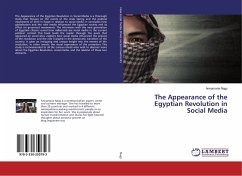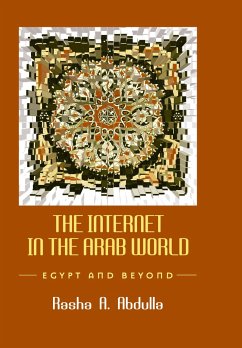
An Analysis of the Egyptian Revolution Coverage in Arabic News Media
Between Frame Dominance and Frame Parity
Versandkostenfrei!
Versandfertig in 6-10 Tagen
29,99 €
inkl. MwSt.

PAYBACK Punkte
15 °P sammeln!
Abstract: This study explores the media framing during the recent Egyptian revolution by Arab online print media. It compares the coverage of the Egyptian newspapers Al-Masry Al-Youm -an independent-alternative newcomer-, the state-owned Ahram online, and the press edition of Qatar's transnational Al-Jazeera by a qualitative textual analysis. The study finds that different journalistic, censorial, and political cultures determine the representation of "internetworked social movements". Al-Jazeera's coverage was sensationalistic, remained in cultural bounds, but challenged the dominant "stabili...
Abstract: This study explores the media framing during the recent Egyptian revolution by Arab online print media. It compares the coverage of the Egyptian newspapers Al-Masry Al-Youm -an independent-alternative newcomer-, the state-owned Ahram online, and the press edition of Qatar's transnational Al-Jazeera by a qualitative textual analysis. The study finds that different journalistic, censorial, and political cultures determine the representation of "internetworked social movements". Al-Jazeera's coverage was sensationalistic, remained in cultural bounds, but challenged the dominant "stability and reform" frame. Ahram online's framing changed after President Hosni Mubarak resigned from being almost congruent with the official viewpoints to a more critical reporting. Al-Masry Al-Youm mobilized protests and counterframed the regime-preferred frame, thus representing a culture in transition to democracy.












